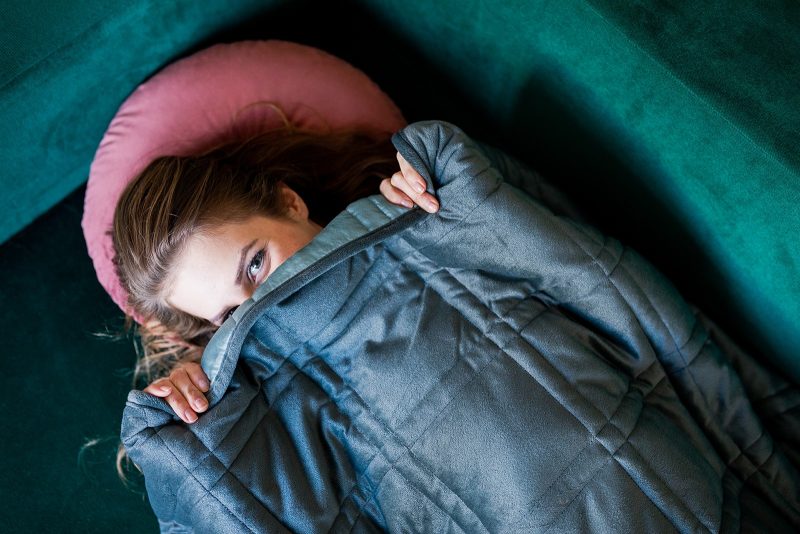The absence of Self-control, Self-love, Self-discipline has a massive negative Impact our Sleep Patterns.

A lack self-control, it can greatly impact our sleep patterns. Without self-regulation, we might find ourselves staying up later than intended, watching just one more episode or scrolling through our devices, leading to a cycle of sleep deprivation.
Research suggests that poor self-control can lead to:
1. *Later bedtimes*: Without self-regulation, we might not be able to resist the temptation of staying up late, which can disrupt our natural sleep-wake cycle.
2. *Increased caffeine and substance use*: When we lack self-control, we might rely more heavily on stimulants like caffeine or substances that can interfere with our sleep.
3. *Poor sleep hygiene*: We might not prioritize creating a sleep-conducive environment, leading to a lack of relaxation and difficulty falling asleep.
4. *Increased stress and anxiety*: Without self-regulation, stress and anxiety can build up, making it harder to wind down and fall asleep.
5. *Difficulty establishing a consistent sleep schedule*: When we lack self-control, we might have trouble sticking to a regular sleep schedule, leading to irregular sleep patterns.
To combat these implications, it’s essential to develop strategies for improving self-control. This might include setting clear goals, creating a bedtime routine, and establishing a sleep-conducive environment.
When we lack Self-love, it can have a profound impact on our sleep patterns.
Research suggests that low self-esteem, self-criticism, and self-doubt can lead to:
1. *Ruminating thoughts*: Without self-love, we might fixate on negative thoughts and self-criticisms, making it difficult to quiet the mind and relax before sleep.
2. *Anxiety and depression*: Low self-esteem can contribute to anxiety and depression, making it harder to fall asleep and stay asleep.
3. *Heightened stress response*: When we don’t love and accept ourselves, our body’s stress response can be triggered more easily, leading to increased cortisol levels, which can disrupt sleep.
4. *Difficulty relaxing*: Without self-love, we might struggle to relax and unwind before bed, as our minds are preoccupied with negative self-talk and self-doubt.
5. *Increased emotional reactivity*: When we lack self-love, we might be more prone to emotional reactivity, which can lead to increased arousal and wakefulness, making it harder to fall asleep.
Furthermore, research suggests that self-compassion and self-love can have a positive impact on sleep quality.
Practicing self-kindness, understanding, and acceptance can:
1. *Reduce stress and anxiety*: By cultivating self-love, we can reduce stress and anxiety, making it easier to fall asleep and stay asleep.
2. *Improve emotional regulation*: Self-love can help us better regulate our emotions, leading to improved sleep quality.
3. *Enhance relaxation*: Practicing self-love can promote relaxation and calmness, making it easier to fall asleep.
To cultivate self-love and improve sleep patterns, it’s essential to prioritize self-care, practice mindfulness, and reframe negative self-talk. Would you like me to provide some additional strategies for cultivating self-love and promoting healthy sleep habits.
When we have lack self-discipline, it can significantly impact our sleep patterns.
Without self-discipline, we might:
1. *Procrastinate*: Put off tasks and responsibilities, leading to increased stress and anxiety, making it harder to fall asleep.
2. *Engage in stimulating activities before bedtime*: Without self-discipline, we might be more likely to watch TV, scroll through our devices, or engage in other stimulating activities before bed, making it harder to wind down and fall asleep.
3. *Fail to establish a consistent sleep schedule*: Lack of self-discipline can lead to irregular sleep patterns, making it challenging to establish a consistent sleep schedule.
4. *Neglect sleep-conducive habits*: Without self-discipline, we might neglect habits that promote healthy sleep, such as maintaining a dark, quiet sleep environment or avoiding caffeine before bedtime.
5. *Overindulge in sleep-inhibiting habits*: Self-discipline helps us avoid habits that disrupt sleep, such as consuming excessive alcohol, caffeine, or heavy meals close to bedtime.
6. *Struggle with bedtime routines*: Without self-discipline, we might struggle to establish a calming pre-sleep routine, making it harder to wind down and prepare for sleep.
7. *Sacrifice sleep for leisure activities*: Lack of self-discipline can lead to prioritizing leisure activities over sleep, resulting in sleep deprivation and related issues.
On the other hand, cultivating self-discipline can have a positive impact on sleep patterns.
By prioritizing sleep, establishing a consistent sleep schedule, and practicing sleep-conducive habits, we can:
1. *Improve sleep quality*: Self-discipline helps us establish a consistent sleep schedule, leading to better sleep quality.
2. *Enhance sleep duration*: By prioritizing sleep and creating a sleep-conducive environment, we can increase the duration of our sleep.
3. *Reduce sleep disorders*: Self-discipline can help us avoid habits that contribute to sleep disorders, such as insomnia or sleep apnea.
To improve sleep patterns and cultivate self-discipline, it’s essential to set clear goals, create a schedule, and prioritize sleep. Would you like me to provide some additional strategies for developing self-discipline and promoting healthy sleep habits.
Leave a Reply
You must be logged in to post a comment.